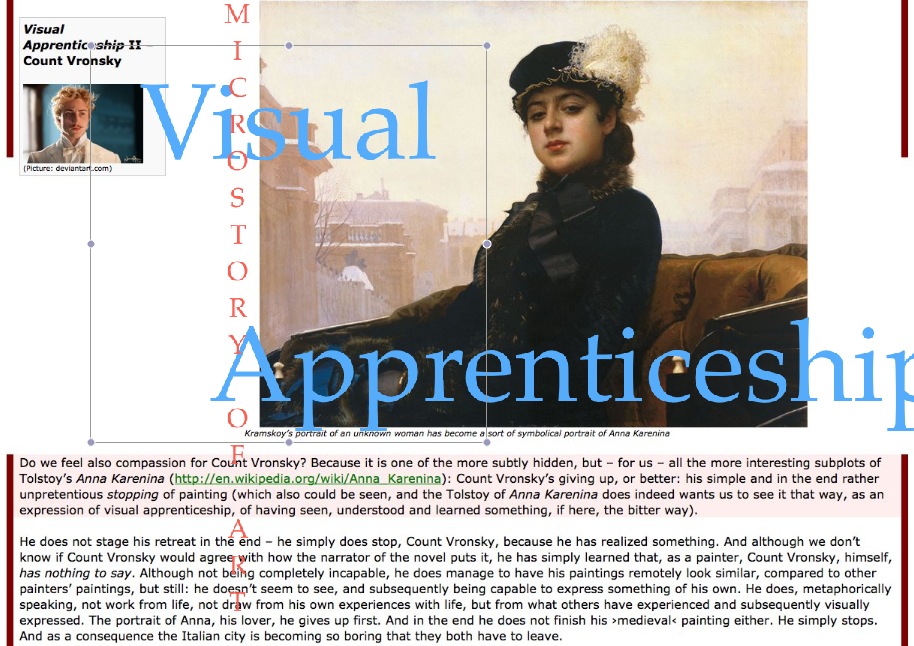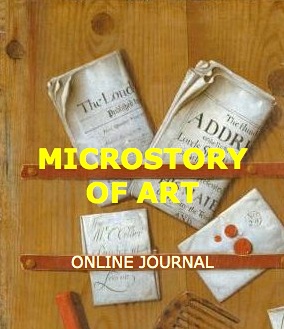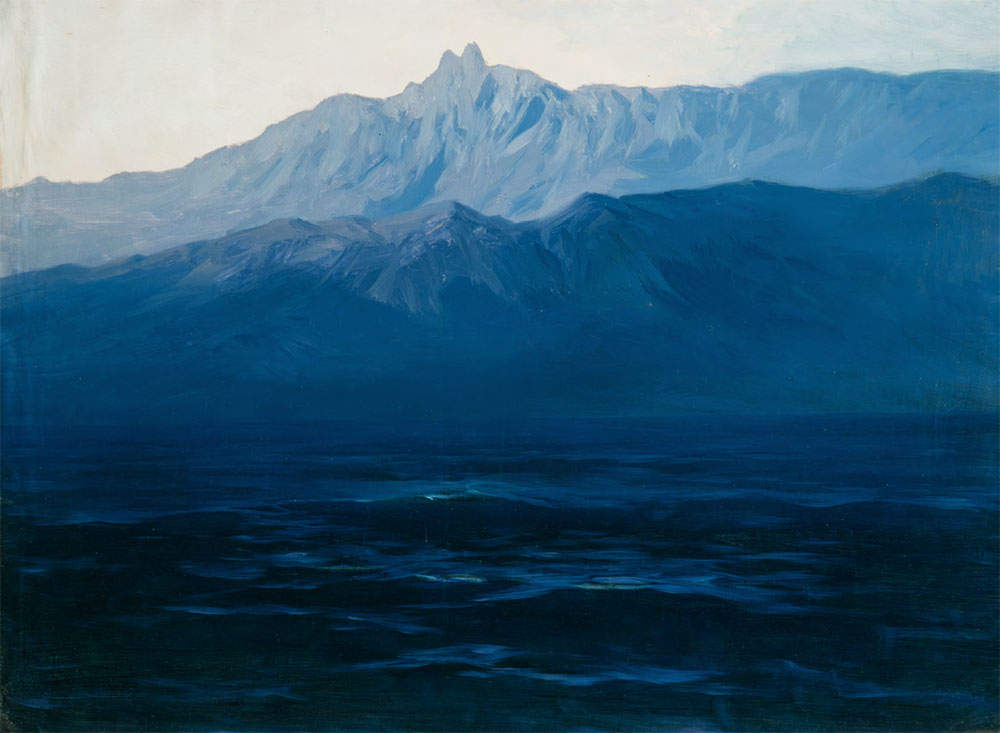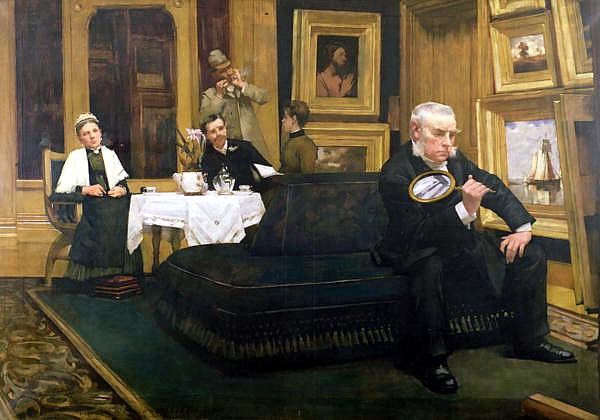M
I
C
R
O
S
T
O
R
Y
O
F
A
R
T
........................................................

NOW COMPLETED:

........................................................
MICROSTORY OF ART
ONLINE JOURNAL FOR ART, CONNOISSEURSHIP
AND CULTURAL JOURNALISM
........................................................
INDEX | PINBOARD | MICROSTORIES |
FEATURES | SPECIAL EDITIONS |
HISTORY AND THEORY OF ATTRIBUTION |
ETHNOGRAPHY OF CONNOISSEURSHIP |
SEARCH

........................................................



 >MICROSTORIES
>MICROSTORIES
- Richard Serra
- Martin Scorsese
- Claude Simon
- Sunshine
- Werner Herzog
- The Creation
- Marcel Duchamp
- Nino Rota
- Wölfflin and Woolf
- Hansjörg Schneider
- Kraftort Arkadien
- Visual Biography
- Schlaraffenleben
- Die Geisteswissenschaften
- The Voyeur
- Buzzword Sustainability
- Paul Verlaine
- Tao Yuanming
- New Beginning
- Seneca
- Still Lifes
- Charles Baudelaire
- Frédéric Chopin
- The Art History of Sustainability
- Wang Wei
- Solarpunk
- Historians of Light
- Lepanto
- Renaturalization
- Plates
- Snow in Provence
- Learning to See
- Picasso Dictionaries
- Peach Blossom Spring
- Picasso Tourism
- Tipping Points
- Sviatoslav Richter
- Weather Reports
- Treasure Hunt
- Another Snowscape in Picasso
- Picasso in 2023
- Dragon Veins
- The Gloomy Day
- The Art of the Pentimento
- Reforestation
- The Status of Painting
- Emergency Supply
- Punctuality
- Watching Traffic
- Zhong Kui
- How Painting Survived the 1990s
- Confirmation Bias
- Sustainability and Luxury
- Garage Bands
- Picasso and Artificial Intelligence
- Eyes of Tomorrow
- Picasso in 2023 2
- Gluing Oneself to Something
- Suburbia
- Bamboo
- Sustainability and Carpe Diem 1
- Interviews with Bruegel
- Sustainability and Carpe Diem 2
- Coffee & Sugar
- Bamboo 2
- Picasso in 2023 3
- Sustainability and Carpe Diem 3
- Cherry Orchard
- Old Magazines
- Chance
- Nick Drake
- Harlequin
- The Smartphone & the Art Book
- Atlas Syndrome
- The Kitchen
- Atlas Syndrome 2
- Consideration
- Tori Amos
- School
- Orchard Auctioning Day
- The Hundred Years’ War
- Sócrates
- Chameleon
- Nefertiti Bust
- Picasso as a Computer
- Sunflowers
- Philemon & Baucis
- Ode to the Radio
- Childhood
- Wimmelbild
- Restitution
- Nick Drake 2
- Wishful Thinking
- Sundays
- The Independent Scholar
- September
- The Fisherman by Pirosmani
- Microadventure
- Sociology
- Salvator Mundi
- Chillon
- Appassionata
- Amber
- Homer
- Berlin
- Planet Walk
- Improvisation
- Seeing Picasso
- These Nice Kids
- Robber
- The One
- The Sea Turtle
- Zoo
- Through the Hush
- Wunderkammer
- I Do Not Seek, I Find
- Shopping Mall
- Food Hamper
- The Secretary
- This Gate
- Nor Rainy Day
- House on a Hill
- Beautiful Island
- Second-hand Bookstore
- Flat
- Slap in the Face
- Serra, Wenkenpark
- Apologies
- The Bells
- Nordmann Fir
- Picasso Wanting To Be Poor
- Picasso, Pirosmani
- A Brief History of Sculpture
- 24 Sunsets
- Rusty Phoenix
- Glove
- Wintry Stanza
- A Song
- Like A Beatle
- Catching An Orange
- Solar Bees
- Permaculture

 >FEATURES
>FEATURES
- Van Gogh On Connoisseurship
- Two Museum’s Men
- Ende Pintrix and the City in Flames
- Titian, Leonardo and the Blue Hour
- The Man with the Golden Helmet: a documentation
- Un Jury d’admission à l’expertise
- Learning to See in Hitler’s Munich
- Leonardo da Vinci and Switzerland
- The Blue Hour Continued
- The Blue Hour in Louis Malle
- Kafka in the Blue Hour
- Blue Matisse
- Blue Hours of Hamburg and LA
- A Brief History of the Cranberry
- The Other Liberale in the House
- The Blue Hour in Raphael
- Who Did Invent the Blue Hour?
- Monet on Sustainability
- Velázquez and Sustainability
- The Blue Hour in Guillaume Apollinaire
- Van Gogh on Sustainability
- The Blue Hour in Marcel Proust
- Picasso and Sustainability
- The Contemporary Blue Hour
- The Blue Hour in 1492
- The Blue Hour in Hopper and Rothko
- Hopper and Sustainability
- The Blue Hour in Ecotopia
- The Hour Blue in Joan Mitchell
- Explaining the Twilight
- The Twilight of Thaw
- The Blue Hour in Pierre Bonnard
- Explaining the Twilight 2
- Picasso on Stalin
- Rubens on Sustainability
- The Salvator Mundi in Bruegel and Rubens
- The Blue Hour in Leonardo da Vinci and Poussin
- The Blue Hour in Rimbaud
- Faking the Dawn
- Frost and Thaw in Ilya Ehrenburg
- Picasso, Stalin, Beria
- Picasso, Solzhenitsyn and the Gulag
- Shostakovich on Picasso
- Hélène Parmelin in 1956
- Historians of Picasso Blue
- Picasso Travelling to Moscow 1
- The Blue Hour in Caravaggio
- Picasso Travelling to Moscow 2
- Picasso, the Knife Game and the Unsettling in Art
- Some Notes on Leonardo da Vinci and Slavery
- Picasso Moving to the Swiss Goldcoast
- The Blue Hour in Camus
- The Blue Hour in Symbolism and Surrealism
- Caspar David Friedrich in His Element
- Exhibiting the Northern Light
- Caspar David Friedrich in His Element 2
- Robert Schumann and the History of the Nocturne
- The Blue Hour in Robert Schumann
- Caspar David Friedrich and Sustainability
- The Twilight of Thaw 2
- Multicultural Twilight
- The Blue Hour in Anton Chekhov
- The Blue Hour in Medieval Art
- Twilight Photography
- The Blue Hour in Bob Dylan
- Iconography of Optimism

 >SPECIAL EDITIONS
>SPECIAL EDITIONS
- Visions of Cosmopolis
- Mona Lisa Landscapes
- Turner and Ruskin at Rheinfelden
- Painters On TV & On TV
- Spazzacamini in Art
- A Last Glance at Le Jardin de Daubigny
- The Experimental Cicerone
- A Dictionary of Imaginary Art Historical Works
- Iconography of Blogging
- Begegnung auf dem Münsterplatz
- Cecom
- Das Projekt Visual Apprenticeship
- Those Who See More
- A Fox on Seeing with the Heart
- Sammlung Werner Weisbach
- Daubigny Revisited
- Some Salvator Mundi Microstories
- Some Salvator Mundi Afterthougths
- Some Salvator Mundi Variations
- Some Salvator Mundi Revisions
- A Salvator Mundi Questionnaire
- A Salvator Mundi Puzzle
- Unknown Melzi
- Francis I and the Crown of Charlemagne
- From Amboise to Fontainebleau
- Drones Above Chambord
- Looking Back At Conques
- Flaubert At Fontainebleau
- Images of Imperial Ideology
- The Chronicles of Santa Maria delle Grazie
- Seeing Right Through Someone
- Melzi the Secretary
- Eying Glass
- A Foil to the Mona Lisa
- A Renaissance of the Cartoon
- Sketching a Family Tree
- Venetian Variations
- A Brief History of Digital Restoring
- A Consortium of Painters
- Leonardeschi and Landscape
- A Christ in Profile
- Learning to See in Spanish Milan
- A History of Gestures
- Leonardo and Josquin
- A Renaissance of the Hybrid
- Suida and Heydenreich
- The Watershed
- Three Veils
- From Beginning to End
- Connoisseurship of AI
- Twilight and Enlightenment
- The Blue Hour in Chinese Painting
- Dusk and Dawn at La Californie
- Iconography of Sustainability
- The Blue Hour in Goethe and Stendhal
- The Sky in Verlaine
- The Blue Hour in Paul Klee
- Iconography of Sustainability 2
- The Blue Hour in Charles Baudelaire
- From Bruegel to Solarpunk
- Some Salvator Mundi Documentaries
- Some More Salvator Mundi Monkey Business
- The Windsor Sleeve
- Brigitte Bardot’s Encounter with Picasso
- Art Historians and Historians
- A Salvator Mundi Chronicle
- The Salvator Mundi and the French Revolution
- The Fontainebleau Group
- The Encounter of Harry Truman with Pablo Picasso
- The Fontainebleau Group Continued
- The Windsor Sleeve Continued
- The Salvator Mundi in Early Netherlandish Painting 1
- Some Salvator Mundi Resources
- A New Salvator Mundi Questionnaire
- The Woman in Picasso
- The Yarborough Group
- Melzi, Figino and the Mona Lisa
- The Yarborough Group Continued
- A Salvator Mundi Global History
- The Salvator Mundi in Medieval Art
- The Salvator Mundi in Medieval Art 2
- The Salvator Mundi in Early Netherlandish Painting 2


 >HISTORY AND THEORY OF ATTRIBUTION
>HISTORY AND THEORY OF ATTRIBUTION
- The Mysterious »Donna Laura Minghetti-Leonardo«
- Assorted Demons of Connoisseurship
- Panofsky Meets Morelli
- Discovering the Eye of Sherlock Holmes
- Handling the Left-handed Hatchings Argument
- Visual History of Connoisseurship
- Alexander Perrig
- Connoisseurship in 2666
- What Postmodernity Has Done to Connoisseurship
- Dividing Four Fab Hands
- A Leonardesque Ambassador
- Test Cases in Connoisseurship
- A Raphael Expertise
- How to Tell Titian from Giorgione
- Louise Richter
- The Unique Property in the History of Connoisseurship
- An Expertise by Berenson
- The Book of Expertises
- An Album of Expertises
- An Expertise by Friedländer
- A Salvator Mundi Provenance
- How to Tell Leonardo from Luini
- An Expertise by Crowe and Cavalcaselle
- An Expertise by Bayersdorfer
- An Expertise by Hermann Voss
- An Expertise by Hofstede de Groot
- Leonardeschi Gold Rush
- An Unknown »Vermeer«
- An Expertise by Roberto Longhi
- An Expertise by Federico Zeri
- A Salvator Mundi Geography
- A Salvator Mundi Atlas
- The Bias of Superficiality
- 32 Ways of Looking at a Puzzle
- James Cahill versus Zhang Daqian
- Five Fallacies in Attribution
- On Why Art History Cannot Be Outsourced to Art Dealers
- On Why Artificial Intelligence Has No Place in Connoisseurship
- Salvator Mundi Scholarship in 2016
- Leonardo da Vinci at the Courts
- The Story of the Lost Axe
- The Last Bruegel
- A Titian Questionnaire
- On Where and Why the Salvator Mundi Authentication Did Fail
- The Problem of Deattribution

 >ETHNOGRAPHY OF CONNOISSEURSHIP
>ETHNOGRAPHY OF CONNOISSEURSHIP
MICROSTORY OF ART
ONLINE JOURNAL FOR ART, CONNOISSEURSHIP
AND CULTURAL JOURNALISM
........................................................

***
ARCHIVE AND FURTHER PROJECTS

1) PRINT


***
2) E-PRODUCTIONS


........................................................

........................................................

........................................................
FORTHCOMING:


***
3) VARIA

........................................................

........................................................

........................................................

........................................................

........................................................
***
THE GIOVANNI MORELLI MONOGRAPH

- The Giovanni Morelli Monograph
........................................................
MICROSTORY OF ART
ONLINE JOURNAL FOR ART, CONNOISSEURSHIP AND CULTURAL JOURNALISM
HOME
The Twilight of Thaw

(Picture: wikiwlh)
(30.-31.10.2022) Few political speeches in history might have had a bigger impact than this one: with Nikita Khrushchev, the leader of international communism, on Saturday, 25 February 1956, embarking on de-Stalinization, by lifting a bloody, bloody cloth from some of Stalin’s crimes (into which Khrushchev had been involved himself), by giving the so-called ›Secret Speech‹ at the XX. Congress of the Soviet Communist Party, held at the Grand Kremlin Palace, the communist project got a blow from which it probably never did fully recover. Because – if Stalin had been a bloody butcher, everyone who had identified with Stalin was discredited, too, and from now on. And many had, and the news – for many it was not really news – was coming from the now-leader of international communism. It was coming from above. Did this mean that also communism, as a project, was discredited now, and from now on? This was the question; and history shows that it probably was, at least to a large degree, a degree unseen, but already feared in 1956.
Although few political speeches in history might have had a bigger impact than this one, some questions as to the so-called ›Secret Speech‹ still remain today, and one seemingly marginal question we would like to address here: when exactly, at what time of day, did Khrushchev actually embark on de-Stalinization? Because two traditions have persisted to the present day: the older tradition has it that Khrushchev had started speaking ›shortly after midnight‹, thus in the very early hours of February 25; and few seem to have had a problem to accept that, probably because a dark, dark matter, and especially a secret matter had to be addressed at night, during the night (the speech did take several hours), and thus would belong, to the cultural history of night. But another tradition has it now that the speech actually was given at a normal morning session, thus actually during the day, and the speaker might have finished roughly at lunchtime, or in the early afternoon. The haziness of history is sometimes rather remarkable. But we are trying to clarify things here as good as we can.

Khrushchev speaking at the XX. Party Congress, but of the secret session no picture does seem to exist
The Nocturnal Tradition
The ›nocturnal tradition‹, as I would like to call it, is the tradition initiated publicly by the New York Times, which, after reporting briefly on the ›Secret Speech‹ already in March of 1956, published the speech on 5 June 1956 (with the article being dated a day earlier), with the introduction stating that Khrushchev had spoken during a secret session on February 24 and 25. Since this session must have begun in the late evening (shortly before midnight), as one can conclude (because the speaker continued on the next day), the event was from now on framed as a nocturnal affair: something that had started at around midnight, and something that had been meant to stay a secret. And since the speech was actually quite long, one could also assume that it ended roughly at dawn.
It is not necessary to study the nocturnal tradition at length here. Many historians seem to have simply accepted the narrative, or the framing of the event (or they must have had similar informations), with one example being Roy Medvedev. And the nocturnal tradition still lives on, as for example can be seen in one recent Khrushchev biography (not the one by William Taubman), or in the English Wikipedia. But the tradition, in all likelihood is not correct factually, even it is true that in the very late evening of February 24 elections still did take place at the party congress, and even if one could easily assume that the ›Secret Speech‹ simply had been what had happened next, after the foreign delegees had been asked to leave the hall.
But how do we know that the nocturnal tradition, in all likelihood, is false, and that the ›Secret Speech‹ was actually given in a morning session?

Picture from a documentary on the year of 1956, which is visualizing the time of day (or night) the ›Secret Speech‹ was given (in the Grand Kremlin Palace, with the commentary stating ambiguously (in the film) that it did take place in the ›early morning hours‹ (picture: youtube.com; ARTE)
The ›Morning Session‹ Tradition
While it is not quite clear when exactly the nocturnal tradition was being challenged for the very first time, one can easily see that, in parallel to the nocturnal tradition a ›Morning Session tradition‹ does exist (see for example the German Wikipedia), and one can assume that during the 1990s – by way of interviewing various participants of the secret session – the matter must have been clarified. Still, it seems that historians rather stay reluctant even today to address the matter (because here, on this page, the matter is actually being discussed explicitly for the very first time). Even Khrushchev biographer William Taubman, who actually clarifies the matter, does so rather implicitly, in passing-by (and without referring to the obvious haziness of historiography). But we would like to quote his clarification here (which is based on an interview with Khrushchev aide Pyotr Demichev (see page 722, note 42 of Taubman 2005; the following quote is from p. 281f.):
»At ten that same evening [of February 24, which was a Friday] Khrushchev called in his aides, Grigory Shuisky and Pyotr Demichev, dictated additional passages to a stenographer, who reportedly broke into tears in the middle of one of them, and ordered the final text brought to him the next morning, February 25.«
And we can conclude that the text of the so-called ›Secret Speech‹ must have been finalized during the night, but according to this rather specific oral testimony, was brought to the actual speaker in the next morning, which was a Saturday, a beautiful day, according to a foreign attendee of the party congress, who, however, was excluded from the secret session, and did spend the day with sightseeing in Moscov instead, hearing from authorities that, allegedly, it was too cold a day for a demonstration to take place on Red Square.
Thus the matter seems clear, but other questions still remain: was the ›Secret Speech‹ also recorded on tape? One historian, Jurij Aksjutin, seems to believe so (see Aksjutin 1995, p. 48), and in case such recording would one day be found, one would also be able to check or to challenge the various accounts on how the hall, the session, the listeners reacted to the text as well as to Khrushchev’s performance: did someone, or did even the audience laugh at one point (as has been suggested), or was everything met with silence, due to shock? Reportedly there was one interruption, and all must have ended – not at dawn, but rather at lunchtime or in the early afternoon.
Selected Literature:
Vladimir Naumov, Zur Geschichte der Geheimrede N. S. Chruščevs auf dem XX. Parteitag der KPdSU, in: Forum für osteuropäische Ideen- und Zeitgeschichte 1 (1997), p. 137-177;
Jurij Aksjutin, Der XX. Parteitag der KPdSU, in: Jahrbuch für historische Kommunismusforschung 3 (1995), p. 36-68;
William Taubman, Khrushchev. The Man and his Era, London 2005 [2003];
Jean-Jacques Marie, Le rapport Khrouchtchev, Paris 2015

As in the Grand Kremlin Palace itself (compare picture above)
it was also only Lenin who presided – on this 1956 Soviet stamp
dedicated to the XX. Party Congress…
MICROSTORY OF ART
ONLINE JOURNAL FOR ART, CONNOISSEURSHIP AND CULTURAL JOURNALISM
HOME
© DS
